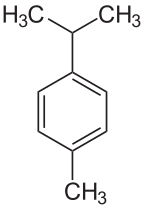– **History**:
– Naval stores were essential in the colonial economy, with masts from New England’s white pines and pitch from Carolina’s longleaf pine forests.
– The British Crown transplanted Palatine refuges to New York Province for naval stores production in the early 1700s.
– Naval stores played a crucial role in the American Revolutionary War, affecting trade dynamics and benefiting the colonists.
– Turpentine and rosin production involved tapping pine trees, particularly in North Carolina, using a system that relied heavily on slave labor.
– The naval stores industry faced challenges post-Civil War due to market disruptions, manpower shortages, and changes in fuel preferences.
– **Colonial North America**:
– Naval stores were pivotal for the Royal Navy, sourced from American colonies like Carolina for pitch and New England for masts.
– The British Crown transplanted Palatine refuges to New York Province to boost naval stores production in the early 1700s.
– Naval stores played a strategic role in the American Revolutionary War, influencing trade dynamics and benefiting the colonists.
– Turpentine and rosin production involved tapping pine trees, particularly in North Carolina, using a system that relied heavily on slave labor.
– Post-Civil War, challenges such as market disruptions, manpower shortages, and changing fuel preferences impacted the naval stores industry.
– **Separation techniques**:
– Today, naval stores are recovered from the tall oil byproduct stream of Kraft process pulping of pines in the US.
– Turpentine and pine oil can be obtained through steam distillation of oleoresin or destructive distillation of pine wood.
– Solvent extraction of shredded stumps and roots has become more common with the availability of inexpensive naphtha.
– Rosin remains in the still after turpentine and water have boiled off during the separation process.
– **See also**:
– Shipbuilding is closely linked to the naval stores industry due to the use of naval stores in ship construction.
– The bark hack is a tool used in the extraction of naval stores from pine trees.
– **Footnotes**:
– Various sources provide in-depth information on naval stores, including their history, production processes, and industry impact.
– References cover topics such as the dark history of artificial light, the naval stores industry in the American South, and industrial chemistry handbooks.
Naval stores are all liquid products derived from conifers. These materials include rosin, tall oil, pine oil, and terpentine. Crude gum or oleoresin can be collected from the wounds of living pine trees.

The term naval stores originally applied to the organic compounds used in building and maintaining wooden sailing ships, a category which includes cordage, mask, turpentine, rosin, pitch and tar.These materials were originally used for water- and weather-proofing wooden ships. Masts, spars, and cordage needed protecting, and hulls made of wood required a flexible material, insoluble in water, to seal the spaces between planks. Pine pitch was often mixed with fibers like hemp to caulk spaces which might otherwise leak.
Presently, pine compounds produced by the naval stores industry are used to manufacture soap, paint, varnish, shoe polish, lubricants, linoleum, and roofing materials.
